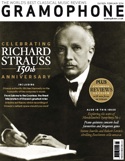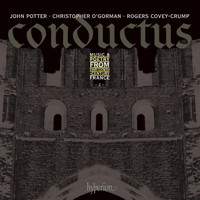Texte paru dans: / Appeared in: |
|
| Appréciation d'ensemble / Overall evaluation : | |
|
Reviewer: David
Fallows
This is the second of the three projected records of 13th-century conductus arising from the research of Mark Everist’s team at the University of Southampton. Like its predecessor (A/12), it is performed entirely by the three voices of John Potter, Christopher O’Gorman and Rogers Covey-Crump – musicians who are entirely inside the style and manage to present everything with impeccable taste and purity. Those who enjoyed the first disc will equally enjoy this.
One of the challenges in recording
a repertory like this is putting it into a coherent programme that makes a kind
of sense to listeners but is musically responsible. So there are two gently
presented themes: one is that they include all the ‘performable’ music in a
manuscript in Worcester College, Oxford, of definite English origin. The other
is that they perform four of the pieces in two different ways. John Potter opens
and closes the disc with the monophonic Bulla fulminante, first in free rhythm
and then metrically; and Christopher O’Gorman does the same with Veste nuptiali.
This reflects the continuing uncertainty about how to understand the notation of
the time. And probably most listeners would conclude that the metrical versions
are easier to hear and love but that the free versions actually sound a lot more
metrical than the performers perhaps intended. Nobody is likely to have any
trouble believing that there is a wide range of truth between those two extremes
(both of which could have been made much more extreme). In the case of Dic
Christi veritas and Ave, tuos benedic, the two performances reflect two
different versions of the music. But spreading these different performances
across the disc makes for a varied musical experience while leaving the
opportunity for listeners who want to study more to compare the versions more
directly. |
|
|
|
|
|
Cliquez l'un ou l'autre
bouton pour découvrir bien d'autres critiques de CD |
|




